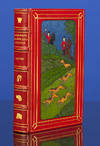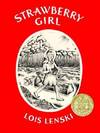
SIMONIDES REDIVIVUS, SIVE ARS MEMORIAE, ET OBLIVIONIS, (QUAM HODIE COMPLURES PENITUS IGNORARI SCRIPSERUNT) TABULIS EXPRESSA
by (MEMORY). BRUXIUS, ADAM
- Used
- Condition
- See description
- Seller
-
McMinnville, Oregon, United States
Payment Methods Accepted
About This Item
Lipsiae [Leipzig]: Impensis Thomae Schureri Bibliopolae Lipsiensis, 1610. FIRST EDITION. 200 x 160 mm. (8 x 6 1/4"). 10 p.l., 1-36, 36-118, [9], 1-63, [1] pp.
20th century olive green paste paper boards, smooth spine with green morocco label. With full-page woodcut of the Ages of Man and half-page illustrated with woodcuts of instruments. Verso of title page stamped in red ink: "Duplicate / ex-libris Bernard Zufall." Young, p. 48; VD17 23:245729R. See also: Pethes, "Cultural Memory Studies," pp. 69-70; and Manusco, "Los límites de la mnemoteca," in Acta psiquiatrica y psicologica de America Latina, 60(4), pp. 217-218. ◆Trivial rubbing to joints and extremities, leaves a shade less than bright (due to paper quality), but a very fresh and otherwise fine copy.
Putting a significant twist on the long-accepted system of the so-called "loci" or "memory palaces" used to store and recall information, this is a very rare copy of a book that combines in a novel way how to remember as well as how--and why--to forget! In what seems to border on paradox, Pethes explains: "Bruxius introduces an integrated 'Ars memoriae et oblivionis'" ("the art of memory and forgetting") by using "a comprehensive set of forgetting techniques" to form a "system of rhetorical memory sites and images. They consist in a reversal of memory techniques: i.e., the annulment of the constellation of 'loci' and 'imagines.'" Crucially, rather than recommending familiar sites such as palaces, fortresses, or cities as loci for memory storage, "Bruxius recommends loci that are either characterized by solitude or insignificance or are populated by people with various ailments." Furthermore, "images are to be selected which--insofar as they are solid objects--have been carelessly produced or damaged; are fleeting and unstable from the outset, such as wind or water; or in the case of groups of people, members of an exiled people." Mancuso points out that Bruxius' "most original contribution is a novel chapter on the 'art of forgetting,'" in which the author "warns us that 'remembering and preserving each thing and each event could become a curse' ceasing to be 'a divine gift and becoming a disease' because 'the ability to leave the past behind is also a divine gift.' Memories, Bruxius insists, 'serve us but they also weigh us down.'" We know that our author Adam Bruxius (fl. 1604-25) was a doctor of medicine in the Paracelsian tradition at the court in Köthen (north of Leipzig) and that he authored other alchemical, Rosicrucian, and occult works, all of them now very difficult to obtain. Our copy, in unusually good condition, comes from the library of magician and memory expert Bernard Zufall (1894-1971), known as the "Human Encyclopedia." Zufall amassed the largest known collection of books on mnemonics, in excess of 1,000 titles, which (except for duplicates like the present volume) he donated to Yale University..
20th century olive green paste paper boards, smooth spine with green morocco label. With full-page woodcut of the Ages of Man and half-page illustrated with woodcuts of instruments. Verso of title page stamped in red ink: "Duplicate / ex-libris Bernard Zufall." Young, p. 48; VD17 23:245729R. See also: Pethes, "Cultural Memory Studies," pp. 69-70; and Manusco, "Los límites de la mnemoteca," in Acta psiquiatrica y psicologica de America Latina, 60(4), pp. 217-218. ◆Trivial rubbing to joints and extremities, leaves a shade less than bright (due to paper quality), but a very fresh and otherwise fine copy.
Putting a significant twist on the long-accepted system of the so-called "loci" or "memory palaces" used to store and recall information, this is a very rare copy of a book that combines in a novel way how to remember as well as how--and why--to forget! In what seems to border on paradox, Pethes explains: "Bruxius introduces an integrated 'Ars memoriae et oblivionis'" ("the art of memory and forgetting") by using "a comprehensive set of forgetting techniques" to form a "system of rhetorical memory sites and images. They consist in a reversal of memory techniques: i.e., the annulment of the constellation of 'loci' and 'imagines.'" Crucially, rather than recommending familiar sites such as palaces, fortresses, or cities as loci for memory storage, "Bruxius recommends loci that are either characterized by solitude or insignificance or are populated by people with various ailments." Furthermore, "images are to be selected which--insofar as they are solid objects--have been carelessly produced or damaged; are fleeting and unstable from the outset, such as wind or water; or in the case of groups of people, members of an exiled people." Mancuso points out that Bruxius' "most original contribution is a novel chapter on the 'art of forgetting,'" in which the author "warns us that 'remembering and preserving each thing and each event could become a curse' ceasing to be 'a divine gift and becoming a disease' because 'the ability to leave the past behind is also a divine gift.' Memories, Bruxius insists, 'serve us but they also weigh us down.'" We know that our author Adam Bruxius (fl. 1604-25) was a doctor of medicine in the Paracelsian tradition at the court in Köthen (north of Leipzig) and that he authored other alchemical, Rosicrucian, and occult works, all of them now very difficult to obtain. Our copy, in unusually good condition, comes from the library of magician and memory expert Bernard Zufall (1894-1971), known as the "Human Encyclopedia." Zufall amassed the largest known collection of books on mnemonics, in excess of 1,000 titles, which (except for duplicates like the present volume) he donated to Yale University..
Reviews
(Log in or Create an Account first!)
Details
- Bookseller
- Phillip J. Pirages Fine Books and Medieval Manuscripts
(US)
- Bookseller's Inventory #
- ST19432c
- Title
- SIMONIDES REDIVIVUS, SIVE ARS MEMORIAE, ET OBLIVIONIS, (QUAM HODIE COMPLURES PENITUS IGNORARI SCRIPSERUNT) TABULIS EXPRESSA
- Author
- (MEMORY). BRUXIUS, ADAM
- Book Condition
- Used
- Quantity Available
- 1
- Edition
- FIRST EDITION
- Publisher
- Impensis Thomae Schureri Bibliopolae Lipsiensis
- Place of Publication
- Lipsiae [Leipzig]
- Date Published
- 1610
Terms of Sale
Phillip J. Pirages Fine Books and Medieval Manuscripts
30 day return guarantee, with full refund including shipping costs for up to 30 days after delivery if an item arrives misdescribed or damaged.
- Does the default shipping charge seem high? If so, please contact us by email at info@pirages.com for a shipping charge tailored to your order and location. You may also call us at (800) 962-6666 in the US or (503) 472-0476 outside the US, Monday through Friday between the hours of 10 am and 4 pm US Pacific time or leave us a message.
- For all orders outside the US and Canada, please contact us for shipping charges before completing your order.
- If you complete your order before you receive a shipping quote, we will need to contact you to get additional funding to cover the cost of shipping before we can ship your items.
- Except in the cases of items priced at $100 or less (for which we charge a small handling fee), we wish only to pass along actual carrier charges to our customers. The constraints of this website force us to assume that each purchase is both heavier and further away than average, so we would be pleased to adjust the charges to reflect actual weights and locations.
About the Seller
Phillip J. Pirages Fine Books and Medieval Manuscripts
Biblio member since 2006
McMinnville, Oregon
About Phillip J. Pirages Fine Books and Medieval Manuscripts
Phillip J. Pirages Fine Books an Manuscripts was established in 1978 on a ping pong table in a basement in Kalamazoo, Michigan. From the beginning, its founder was willing to sell a range of material, but over the years, the business has gravitated toward historical artifacts that are physically attractive in some way--illuminated material, fine bindings, books printed on vellum, fore-edge paintings, beautiful typography and paper, impressive illustration. Today, the company still sells a wide range of things, from (scruffy) ninth century leaves to biblical material from all periods to Wing and STC imprints to modern private press books to artists' bindings. While we are forgiving about condition when something is of considerable rarity, we always try to obtain the most attractive copies possible of whatever we offer for sale.
Glossary
Some terminology that may be used in this description includes:
- First Edition
- In book collecting, the first edition is the earliest published form of a book. A book may have more than one first edition in...
- Title Page
- A page at the front of a book which may contain the title of the book, any subtitles, the authors, contributors, editors, the...
- Morocco
- Morocco is a style of leather book binding that is usually made with goatskin, as it is durable and easy to dye. (see also...
- Leaves
- Very generally, "leaves" refers to the pages of a book, as in the common phrase, "loose-leaf pages." A leaf is a single sheet...
- Verso
- The page bound on the left side of a book, opposite to the recto page.
- Spine
- The outer portion of a book which covers the actual binding. The spine usually faces outward when a book is placed on a shelf....
- Rubbing
- Abrasion or wear to the surface. Usually used in reference to a book's boards or dust-jacket.
- Fine
- A book in fine condition exhibits no flaws. A fine condition book closely approaches As New condition, but may lack the...






